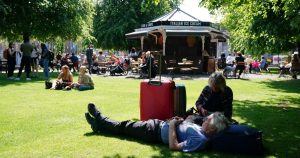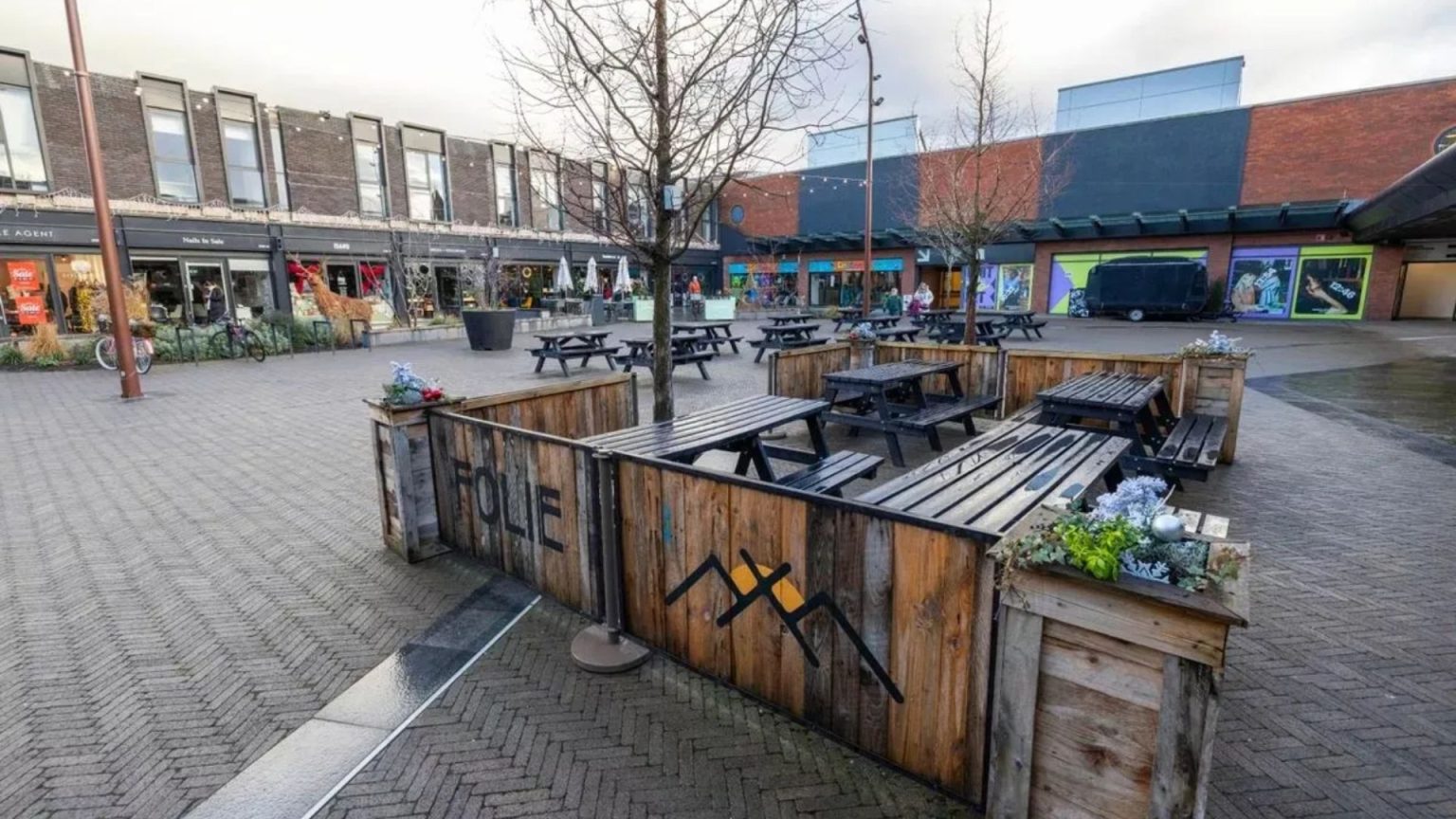A. The Transformation of Stanley Square: From Derelict to Dynamic
Stanley Square, a once-bustling shopping center in Sale, Manchester, experienced a period of decline in the latter half of the 20th century. Despite its popularity with locals in its heyday, the center suffered from a lack of investment, resulting in unsightly entrance gates, barren spaces devoid of greenery, and a growing number of empty shops. This decline painted a bleak picture of a once-vibrant community hub struggling to maintain its relevance. However, the dawn of the 21st century brought with it a renewed vision for Stanley Square. In 2020, plans for a £70 million redevelopment project were approved, aiming to transform the dilapidated shopping center into a modern "cultural square." The goal was to breathe new life into the community by creating a space that catered to the evolving needs and desires of the local population.
B. A Hub of Entertainment and Community:
The revitalization of Stanley Square has been met with overwhelming enthusiasm from residents. The once-dreary shopping center has been replaced by a vibrant hub of activity, offering a diverse range of attractions for people of all ages and interests. The new square boasts a variety of dining establishments, catering to diverse culinary preferences, alongside an array of shops offering a wide selection of goods. For those seeking entertainment, the newly opened Northern Light Cinema, the first new cinema in Sale in 40 years, provides a state-of-the-art cinematic experience. Above the bustling shops, modern office spaces cater to the needs of workers, further enhancing the square’s appeal as a multi-functional community hub. This blend of retail, entertainment, and workspaces has created a dynamic and engaging environment that draws people from all walks of life.
C. Positive Reception and Nostalgia for the Past:
The transformation of Stanley Square has garnered significant praise from locals, many of whom recall the center’s less prosperous days. Residents like Phil and Valerie Hadwen, who live in nearby Timperley, express their delight at the positive changes, noting the stark contrast between the current vibrant atmosphere and the previously "awful" state of the square. They appreciate the revitalization efforts, which have transformed a once-desolate area into a thriving destination. However, not all residents share the same enthusiasm for the makeover. Some, like Sue, express a sense of nostalgia for the traditional high street, lamenting the closure of building societies and banks in favor of coffee shops, nail salons, hairdressers, and clothing stores. This sentiment reflects a broader debate about the changing face of urban landscapes and the potential loss of essential services in the pursuit of modernization.
D. A Space for Connection and Community Engagement:
Beyond its commercial offerings, Stanley Square has also become a focal point for community engagement and connection. The Hiya facility serves as a central gathering place, offering a diverse range of activities for residents to participate in. Sale Sings, a local choir, holds regular rehearsals at Hiya, fostering a sense of community through shared musical expression. The community bike kitchen provides a valuable resource for cycling enthusiasts, promoting sustainable transportation and fostering a sense of camaraderie among bike lovers. The monthly tea dance offers a social outlet for residents to connect with one another, while the makers market showcases the creativity and craftsmanship of local artisans. These initiatives contribute to a vibrant community spirit and provide opportunities for residents to engage with one another in meaningful ways.
E. Contrasting Fortunes: The Case of Lewisham Shopping Centre:
While Stanley Square celebrates its successful transformation, another shopping center in London faces a different fate. Lewisham Shopping Centre, once a beloved retail destination in the 1990s, is slated for demolition as part of a £1.3 billion redevelopment project. The planned transformation aims to create 1,700 new homes, a modern shopping complex with a rooftop garden, and a new live music venue. However, the project has sparked controversy among locals, many of whom view the demolition of the iconic shopping center as a "complete waste of money." Concerns have also been raised about the potential disruption caused by the ten-year construction period. The contrasting fortunes of Stanley Square and Lewisham Shopping Centre highlight the complex dynamics of urban redevelopment and the diverse perspectives surrounding such projects.
F. Revitalization vs. Preservation: A Balancing Act:
The stories of Stanley Square and Lewisham Shopping Centre represent two contrasting approaches to urban renewal. Stanley Square’s transformation exemplifies the potential for revitalizing neglected spaces, creating vibrant community hubs that cater to modern needs. The project demonstrates how strategic investment and community engagement can breathe new life into declining areas, fostering economic growth and social cohesion. In contrast, the proposed demolition of Lewisham Shopping Centre raises questions about the balance between preserving existing structures and pursuing ambitious redevelopment plans. The contrasting public reactions highlight the importance of considering community sentiment and the potential loss of cherished landmarks when undertaking large-scale urban renewal projects. The challenge lies in finding a balance between progress and preservation, ensuring that redevelopment efforts enhance the lives of residents while respecting the historical and cultural significance of existing structures.











